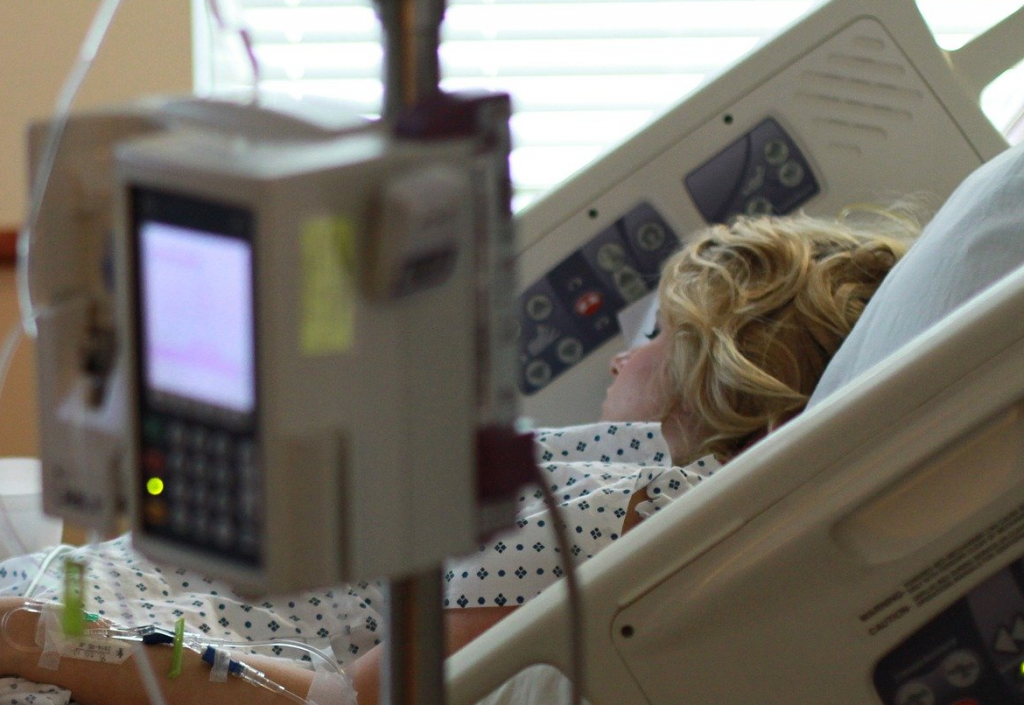31/03/2020
“Patients need to be prioritized depending on whether their condition is reversible or not, but there can be no place for just abandoning people”
The dean of the Faculty of Nursing, María Jiménez, explains the importance of distributive justice in triage and calls for the mental health of health professionals to be protected given the ethical decisions that they have to take

The dean of the Faculty of Nursing, María Jiménez, explains the importance of distributive justice in triage and calls for the mental health of health professionals to be protected given the ethical decisions that they have to take
Professionals working in accident and emergency, intensive care and services that attend to the critically ill are in direct contact with the most unstable patients. They often have to take difficult decisions in emergency situations and when health resources are insufficient to meet the needs of the high number of patients. The need to take these decisions can lead to a phenomenon known as ‘moral stress’, which is caused by the restrictions that prevent them from doing what they would do in normal circumstances.
In a crisis like the current one, “we move from the ethics of daily healthcare to a situation in which the parameters that have to be taken into account are much broader and the perspective becomes one of macroethics”, states the dean of the Faculty of Nursing, María Jiménez, who is a specialist in the ambit of healthcare ethics, bioethics and accident and emergency care. For this reason the decisions that are taken “must be reached by consensus and based on scientific, technical and ethical criteria under an umbrella of protocols that help professionals to take decisions that strike the balance between the resources available and the need for humane healthcare”.
Triage based on distributive justice
To tackle these difficulties, the Spanish Society for Intensive and Critical Medicine and Coronary Units, which brings together professionals working in this ambit, has published a protocol regarding the ethical aspects involved in decision taking that is intended to guide the actions of hospital workers during the COVID-19 health emergency. This document states that is legitimate to establish a form of triage that is based on the principle of distributive justice and adds that the criteria must be re-evaluated on a daily basis because it is essential that protocols are not blindly applied without thinking, instead they must allow for fair and transparent decisions to be taken.
Jiménez explains that the concept of “triage” has been misunderstood by the public due to misinformation and the use of inappropriate and belligerent language by public figures: “This is not a war, it is a public health problem in which resources have been overwhelmed by the demand”, she asserts. For this reason, it is essential to realize that patients are prioritized on the basis of “distributive justice”, that is, treatment is administered in proportion to the benefit that the patient is likely to receive and according to the extent to which their condition is reversible.
“Nobody should die alone”
If their condition cannot be reversed, palliative measures must be taken, although Jiménez insists that “there can be no place for just abandoning people”. She also points out “whether or not there is an emergency, the overriding principle is the duty to provide care, which in the present situation can come under pressure. And it is an ethical care priority that nobody dies alone”. As an example of good practice, she highlights the initiative of hospitals who allow one family member to be confined in the same room with an individual who is reaching the end of their life.
How is the mental health of health professionals being affected
In addition to patients and relatives, “the mental health of professionals must be looked after to prevent them from suffering moral stress and burn out in the form of disillusionment, frustration, or mental health problems induced by situations that can harm professionals”, states María Jiménez. This primarily occurs because of the increased number of ethical decisions that they have to take in highly complex and uncertain situations. It is also due to the fact that “we are trained to accompany people in serious situations and to make every effort to save their lives, but in much more controlled settings. However, at this moment, we need to match our treatment to scientific evidence that indicates what is and what is not useful for people”.
Consequently, healthcare centres and the health system need to “care for all their professionals and for our Nursing and Medicine students, who are collaborating in these tasks with real desire to help; we must take every measure not to put them at risk because they are our future”, Jiménez advised.
More news about: Coronavirus
